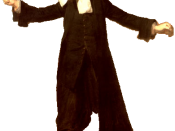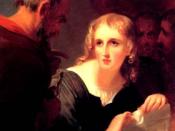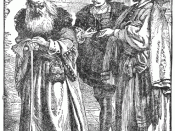Religion and race are moving forces with exorbitant capabilities, and for this reason are a driving theme in Shakespeare's playwright 'The Merchant of Venice'. Through modern day events, it is evident that the religious and racial affairs portrayed in the text are of equal relevance in today's society. Whilst stating this, many individuals may deny and believe that we [society] no longer deal with such issues. This essay through contextualisation, quotes and scenes from the text as well as examples from today's society will prove that the social order are still undergoing the same religious and racial issues as we once were in the context of the playwright.
The merchant of Venice was written during the highly pious Elizabethan period, a time of religious controversy and due to certain prejudicial restrictions Shakespeare could not write against his own country for he would be persecuted. For this reason his playwright is set in Venice, and the religions in contend are Jews, formally known as an adherent of Judaism as a religion, and Christians, ones who live according to the teachings of Jesus.
Religious and racial issues approached in 'The Merchant of Venice' are consecutive with events of the 20th century, as if they a global 'tradition' and are therefore of significance to our society. The Merchant of Venice portrays a prejudiced message. This is first comprehended in Act one where Shylock openly says;
"I hate him [Antonio] because he is a Christian... May my people be cursed if I forgive him."
Here shylock illustrates the prejudice discrimination, which is carried on throughout the play. Although Shylock is vilified by an anti-Semitic society, Shakespeare allows him an impassion plea for empathy with his now-famous speech;
"I am a Jew. Hath not a Jew eyes? Hath not a Jew hands, organs, dimensions,


